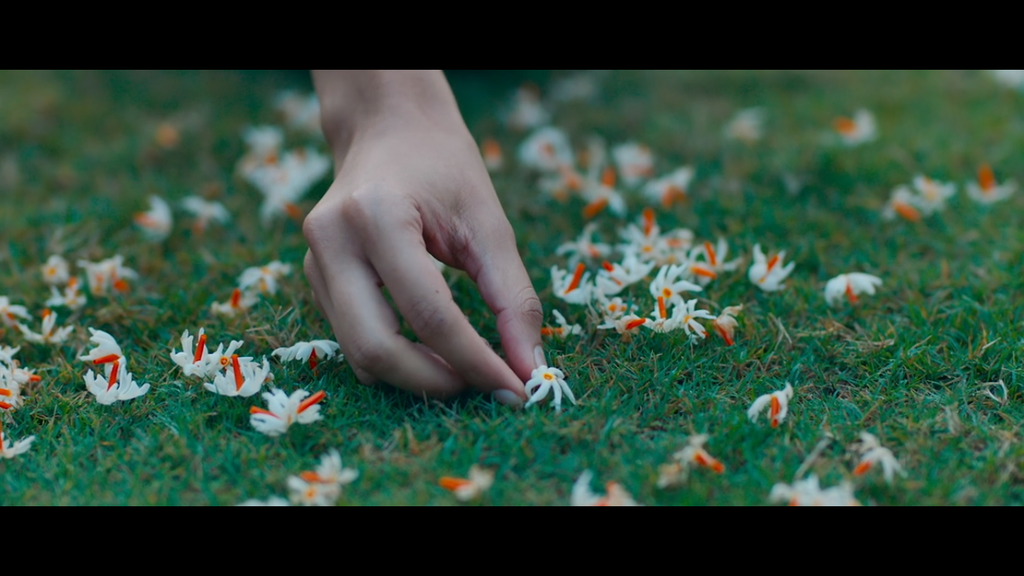
Film Matters: Please tell us about your article that is being published in Film Matters.
Anushree Joshi & Saman Waheed: Our article explores the concerns of human mortality in a rapidly disconnecting society, owing to modern capitalism in Indian metropolitans, by focusing upon the 2018 Hindi film, October. We resurrect the works of two of the younger Romantics — John Keats and Percy Bysshe Shelley — to compare the philosophy espoused within their poetry, with the conflict explored in the film. The ephemeral nature of life and the process of coping with loss and death in an increasingly individualistic world are pertinent concerns of the human condition, and it was our objective to seek some answers in the words of these poets.
FM: What research and/or methodologies do you incorporate in your article?
AJ&SW: We reviewed the literature around the relevance of Keats’s and Shelley’s poetry, first doing close reading and then associating the same with their autobiographical experiences. For research on the film, we followed a close-viewing exercise first, then we examined the form in association with the content of the film, and finally we moved on to a discourse on contemporary modernity in India and its nexus with capitalism. Ultimately, we compared the contexts and texts we were studying, and established the connectivity among them as a foundation for our comparative study.
FM: Describe the original context for/when writing this article while an undergraduate student.
AJ&SW: The article was a part of our assessment for our fourth-semester paper, British Romantic Literature.
FM: How has your department and/or institution supported your work in film and media?
AJ&SW: The Lady Shri Ram College for Women, New Delhi, English Department has been supportive of our creative endeavors at each step, and we were always provided the right encouragement and guidance to explore texts, theories, and media beyond the syllabus. Even though our paper was on British Romanticism, we were given the opportunity to associate it with a twenty-first-century film in Bollywood, opening up multiple dimensions.
FM: How has your faculty mentor fostered your advancement as a film scholar?
AJ&SW: The entire English Department faculty has always guided us in terms of research methodology and academic writing, despite the fact that original research work is not a usual part of the curriculum at the undergraduate level in the University of Delhi.
FM: How has the Film Matters editorial and publication process impacted the development/evolution of your article?
AJ&SW: The Film Matters editorial process has helped the development of our article by the positive feedback that provided a sense of legitimacy to our work. The constructive criticism helped us understand how our paper can benefit from having a visual dimension to it. Their opinions on certain arguments within the paper enabled us to substantiate our points better while also editing it for clarity and conciseness.
FM: What audience do you hope to reach with your Film Matters article and/or what impact do you hope it has on the field of film studies?
AJ&SW: We hope to reach film enthusiasts across the globe, since our article is an attempt at connecting literatures and media beyond geographical, spatial, and temporal divides. When we started working on it, the COVID-19 pandemic had just begun and nobody could fathom the full gravity it would bring with it. However, the past year — with our research and article, along with the editorial process of Film Matters — has been rooted in the growing concern with mortality, unpredictability of life, and the transient yet transcendental nature of human connectivity, virtually and physically. It is this chord that we hope to strike in our readers, as they learn to imbibe the “negative capability” of Keats among these uncertainties, or to form meaningful and uncanny human relationships with people who are not restricted by labels, as Dan does with Shiuli.
FM: What are your future plans?
AJ&SW: We plan to continue our higher education in the fields of literature and liberal humanities, and we would be interested in continuing our film studies research in the meanwhile. We would also love to associate with Film Matters in the future.
Author Biographies
Anushree Joshi is a student of English literature, with an interest in the intersections of culture and cinema. A former Editor for DU Beat, she has been writing with Terribly Tiny Tales since 2016. Her work has been published with The Wire, Film Companion, and Feminism in India, and she is the Editor-in-Chief of Jabberwock-LSR.
Saman Waheed is a student of English literature. She is the President of LSR Chapter at Global Youth India, and has been a content writer with various organizations. Her work has been published by Sociolegalliterary, High on Films, Jabberwock, and Chalchitra Darpan. She is interested in the cultural production of South Asian cinema.




































